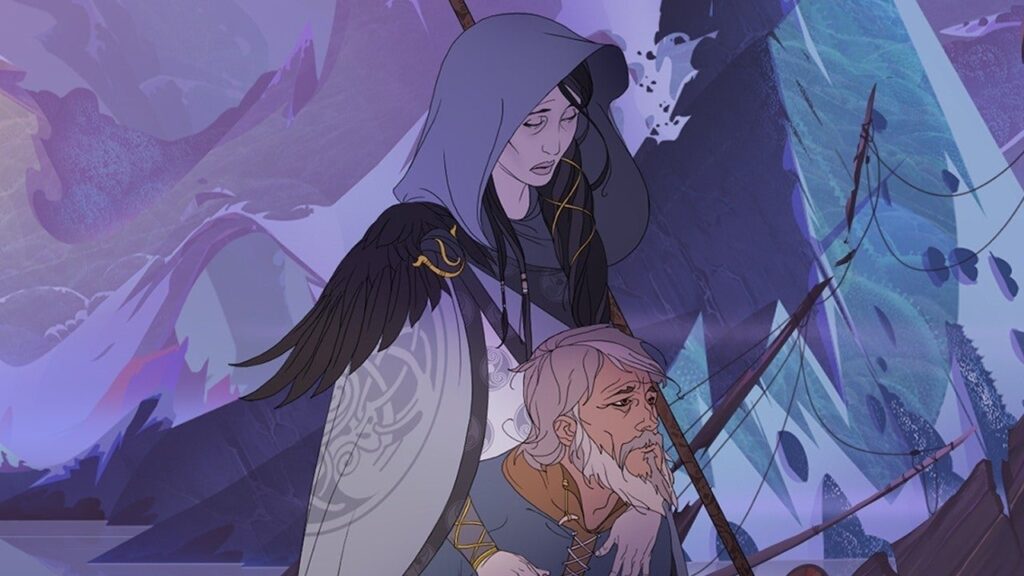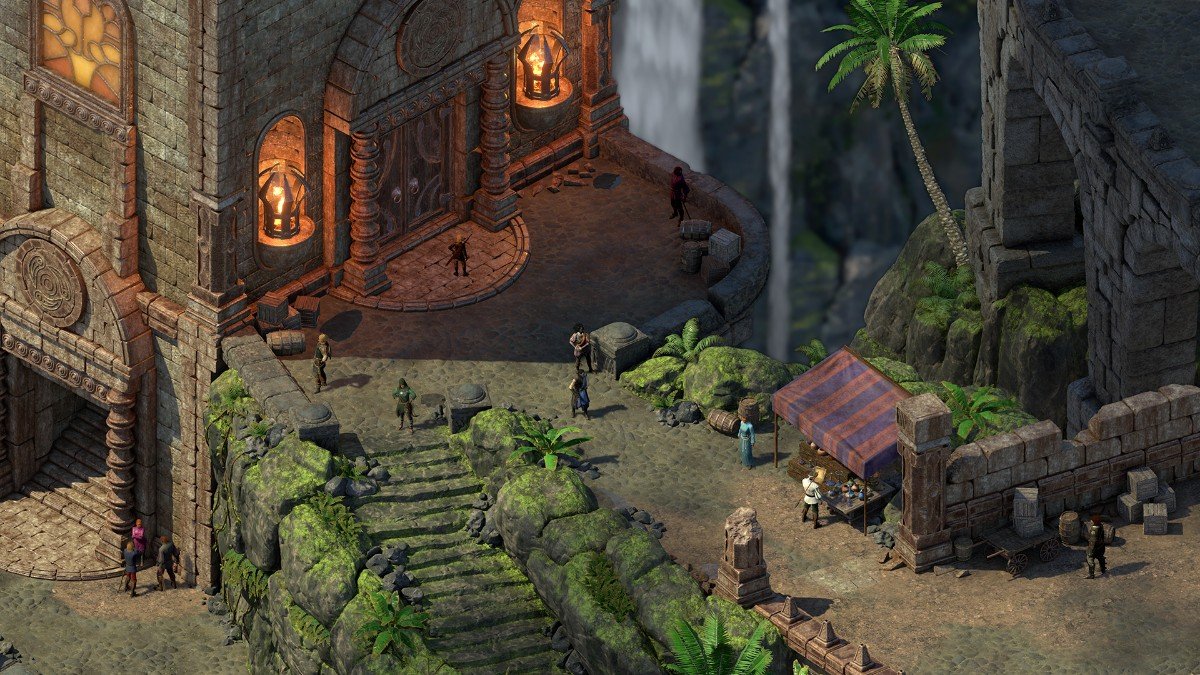
In the last decade, we’ve witnessed a boom in the indie game development space. Game development has become increasingly democratized, with engines like Unreal removing licensing fees, accessible middleware tools, and digital storefronts. The average developer does not have business acumen or marketing savvy, however, which is why there have also been numerous indie publishers rising up (Devolver Digital, Raw Fury, Fellow Traveller, etc.) in recent years to assist creatives on their journey.
Versus Evil, set up in 2014, is one such indie label, and its founder Steve Escalante has seen an industry change before his eyes over the course of two decades in the industry.
As with most industries, the money (or lack thereof) is at the heart of some of the biggest changes in the game development landscape, Escalante said in a recent interview with GameDaily.
“I feel like it could be slipping back into the old days because everyone needs money, and as soon as everyone needs money, the power is in the control of the guys who have the money,” he commented.
Versus Evil, like other indie labels, is interested in leveling the playing field to give indies a chance. Escalante’s operation provides direct support for developers ranging from marketing, advertising, public relations, social media, community management, product strategy, monetization, and, of course, distribution. Escalante believes that the industry, and those with the money and power, should not be overlooking the little guy.
“The responsibility in my opinion is for those guys to say, ‘Yes, but you can have a return for your money. Yes, you’re taking the risk, but at the same time, if you’re keeping 90% of the revenue, then you are going to make these guys beholden to you, and that is why the whole indie boom started to begin with,” he added. “So be responsible; it’s okay for other studios to make money. It’s okay for other studios to move on from you because they’re being successful, because that’s what fosters creativity.”

A lot of the small studios aren’t getting as many opportunities or recognition, and for those that do start to grow, they typically get acquired by a big game company. And that means that the so-called AA studio has all but gone extinct. Microsoft has certainly played a part in this recently, gobbling up inXile, Obsidian, Ninja Theory, Compulsion Games, Playground Games, Undead Labs, and just recently Double Fine Productions.
“That’s arguably one of the most interesting things I think that’s happening right now, because you can look at it in so many different ways,” Escalante said. “I would agree that the midsize developer is certainly disappearing… potentially even being redefined, right? I mean the Obsidian team of 100-plus people is hard to sustain as an independent developer, especially since most of the big AAA companies are bringing in internal development.”
Bulking up internal development while simultaneously leveraging outsourcing companies like Virtuous or Keywords “essentially removes a lot of the needs [for] that midsize developer.” Whether that’s full development, co-development, live ops or other support, the indie or midsize developer is falling by the wayside.
“Most of the bigger companies want teams that are 30, 40, 50-plus people. As soon as you say that, the little indie is out,” Escalante explained. “I’ve had conversations with many of those people, and they’re asking me how we’re doing. I’m like, ‘Well, I work with some amazing indie teams to help support games. We have our own internally as well. These guys and girls are all just really good at what they do, and it’s the bigger companies that overlook these guys all the time because they’re only five people, 10 people, 15 people.’ And I look at them and say, ‘Yes, but they’ve done some amazing work and we’ve worked with them over the years, and they deliver.’
“So it’s an interesting thing where you have these indie companies that are being overlooked because of size, you have everyone else that basically is being gobbled up for internal development, and then you just have the big outsourcing companies like the Keywords of the world that can present a much different picture than let’s say an indie porting studio or an indie art studio, because they just don’t have the 30, 40, 50 people to be able to throw at a project. Which is also scary, because those things can be canceled at any time.”
Because the majority of the indie companies aren’t given those opportunities, they’re not able to grow responsibly. And then you’re looking at a chicken-and-egg scenario because they need the bigger numbers to become more attractive.
“It creates an interesting dilemma… because most of them are working on let’s say indie focused budgets, and they’re staying small,” Escalante continued. “It’s something that I have conversations [about] with my guys all the time. It’s almost like I have this responsibility… because I see this whole transition of, ‘Isn’t this what happens? Isn’t this why the whole indie movement started many years ago?’ [There was that] shift 20-plus years ago where the bigger companies weren’t funding titles because it’s just not going to sell a half million units. So [the loss of] IP rights and all that stuff started happening.”
With the industry almost in a state of haves and have-nots, funding for the little guys becomes a critical issue. Escalante noted that Versus Evil definitely is funding more than it used to.
“More teams need funds as opposed to in the past [when] a lot of teams were just developing the game on their own and all they needed us to come in and do was fund the marketing,” he said.
Ultimately, that means a label like Versus Evil has to be more selective.
“We’re being submitted so many games that are playable that it allows me, at least today, to look at the titles in that capacity and say, ‘Okay, which ones are we the most excited about in funding and playing?’ Whereas the higher risk ones are trusting that team from a design doc all the way through and hoping that they find the fun after we’ve already put in a sizable amount of funds, which is obviously a higher risk.”
Versus Evil won’t fund just any indie, either. The projects have to fit the mold of what Versus Evil has become known for, which judging by The Banner Saga and Pillars of Eternity II is primarily the RPG genre. “There are certain games that are Devolver games, certain games that are Raw Fury games, and have that flavor. We’ve literally looked at games and said, ‘I like it, but I’m not sure that that’s a Versus Evil title.’ It’s how we’re known and what we’re known for, which is really just good RPGs, good strategy, good art, that type of thing,” Escalante noted.

For a developer that’s lucky enough to get a pitch approved, the challenge of discoverability still awaits. Escalante acknowledged that discoverability remains their number one issue by far. That said, the rise of more storefronts (Epic Games Store, Discord, etc.) is certainly helpful. More platforms means more opportunities to find an audience.
“When you look at the digital PC business, up until recently most of it has been Steam and then Steam resellers. So the reality is it’s Steam. As a business owner, it should make you nervous that you have one of your major revenue streams essentially through one partner,” Escalante observed. “So I think that it’s really good to look at the PC landscape now and see that there are different segments, different retailers, different regions of excellence. You’ve got aggregators out in Europe. You’ve got the GOG guys that have a different angle with the DRM-free stuff. They’re also running a curated store as well. You’ve got the Epic guys that are running a pretty highly curated store right now as well, and they’ve also put out data that shows that a lot of their customers don’t even have Steam.
“I think these new storefronts that are out there are good for everyone to basically really make sure that your title gets the best chance of being promoted, and if that means doing a special deal with somebody, whether it’s Discord or Epic or what have you, then why not?”
On that last point, Escalante pushed back on the controversy that was generated by some of the exclusive deals Epic Games Store landed. He doesn’t understand why consumers are fuming.
“I know a lot of customers have basically been upset that Epic is doing what they’re doing. They feel like maybe they’re fragmenting the market. I disagree. It’s not a fragmentation,” he stressed. “Epic didn’t stand at the store and say, ‘Hey, I know you have all your music with Google and we’re asking you to switch over to an iOS platform.’ That’s not what they’re doing. I mean it’s literally just click on a different icon on your computer that you have at home. So to me fragmentation is asking you to switch over to this completely different device as opposed to an icon on your desktop.
“The reality is customers have been doing that for Origin and Uplay and Battle.net and all these things as well, but for some reason the perception of this other store, whether it’s Epic or Discord or others, has created these interesting thoughts from the consumer point of view. So I look at it on the business side as well and just say, ‘I think it’s great. It reminds me of the benefits and heyday of selling into GameStop and EB Games, and EB being the stronger in PC and GameStop being the stronger in console. And having those retailers basically working hard with you to sell as many of your games as possible.’ That’s a really positive thing.”
And from the developer standpoint, Escalante also argued that Epic’s 88/12 revenue split was “necessary,” because in today’s marketplace “30% is a hard thing to swallow if you’re not necessarily seeing that value.”
A more generous revenue share is no doubt appreciated, but it doesn’t solve the discoverability crisis. So what can a small team do? Well, aside from enlisting marketing help from a label like Versus Evil, Escalante said it really does begin with quality. Without that, all the marketing in the world won’t come to a game’s rescue. And while indies do lack resources, Escalante has seen one too many times situations where a team makes an excuse for quality.
“You can’t basically say it’s this [orf that] and then make concessions and/or excuses as to why it’s not as good. If you know it’s not as good, then you should probably focus on making sure that it is as good,” he remarked. “The argument of, ‘Well we’re indie,’ kind of doesn’t [fly] … I mean people don’t believe in that excuse that much anymore. So you’ve got to create a good game in its own right, and yes you’re going to have to probably make some feature considerations. You’re going to have to make some art considerations, certainly some scale considerations because you are indie, but at the same time, focus on what you’re doing. Focus on quality and the people that are playing those games will see that and react accordingly.”
Once the quality is up to snuff, then Versus Evil can put its weight behind a game to amplify its messaging. But there’s another trend that developers should be keenly aware of as they grapple with their next projects: the impact of mobile on player expectations.
There’s now an entire generation of gamers who grew up with mobile games as their first or dominant platform. These players are now in their late teens or even early-20s. It’s a new audience that may not seek out what the old-school PC developers are used to creating.
“You start asking questions of, does a mobile customer or kid that basically is now moving into PC and console… do they discard a premium game like they do their free-to-play mobile game? Is it that fast? Are they willing to put in 100 hours into a game?” Escalante pondered. “All those questions are pretty big questions as you start looking at what you’re creating content wise. So I think when you start looking at that and business models, whether that’s subscription or what have you, you kind of look at it and go, ‘All right, so what are we doing to create the game?’”
This generation of players has come to expect constant engagement as well. It’s something that developers in the live service era absolutely must consider, especially as more subscription services begin to enter the scene.
“What is your game today? What is it going to be in the next year? Are you still going to be supporting it? Are we still creating DLC? Is that free? Is that premium? If we’re part of a subscription service, how are we engaging those customers in month one, in month six, and 12 months? So all of those things basically start to really shape how you develop,” Escalante advised.
“It becomes a really interesting problem to solve from a game perspective… do we need to create that 60 to 100-hour game or do we focus on a tighter game experience that they can play, really get enjoyment out of it, and then get out? To some regards, Fortnite’s kind of like that. If you play one match of Fortnite, you can be done. The reality is it’s so much fun, you play multiple times.”
Making engrossing interactive entertainment is hard enough, and in the indie world it often means having to wear many hats at a small studio. But only those who can quickly adapt to ever-changing technologies and player behaviors will be able to survive the long game. Satisfying the community is a critical component. As Escalante said, it all boils down to: “How are we developing content and how are we keeping that conversation going with the community?”
 GameDaily.biz © 2025 | All Rights Reserved.
GameDaily.biz © 2025 | All Rights Reserved.